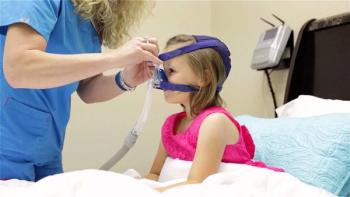
Children diagnosed with COVID-19 gained more weight than COVID-negative peers, especially after diagnosis, during the pandemic.

Children diagnosed with COVID-19 gained more weight than COVID-negative peers, especially after diagnosis, during the pandemic.

Study author David Brousseau, MD, MS, explains the benefit of a child being able to go home after a sickle cell disease-associated ED visit.

Prompt opioid dosing in emergency care may reduce hospital stays for children with sickle cell disease pain, new research revealed.

Ji-Hyun Lee reports that short surgical exposure to sevoflurane did not affect IQ, behavior, or language outcomes in infants and toddlers.

Capvaxive was superior to PPSV23 for each of the 9 serotypes unique to Capvaxive and non inferior to PPSV23 for the 12 shared serotypes.

A recently immigrated mother from India presents in preterm labor at 32 6/7 weeks and delivers a vigorous baby whose initial blood culture is positive at 18 hours of life with gram negative rods.

Real-world evidence supports neffy as comparable to epinephrine injection in anaphylaxis care.

Results suggest that a single, brief exposure to general anesthesia for surgery is unlikely to impair short-term neurodevelopment in young children.

A recently immigrated mother from India presents in preterm labor at 32 6/7 weeks and delivers a vigorous baby whose initial blood culture result is positive at 18 hours of life with gram-negative rods.

Get caught up with Contemporary Pediatrics! This list helps you navigate our top stories from the week, all in one place.

"The financial cost should be minimal; if you can see 1 or 2 extra patients per month, the AI scribe should pay for itself."

The FDA approves recombinant VWF for pediatric von Willebrand disease, enhancing treatment options for children during bleeding episodes and surgeries.

Fewer than half of Medicaid-enrolled children with sickle cell disease in Michigan received dental care in 2022, new study shows.

Brousseau stressed that timeliness is not just guideline adherence, but it meaningfully changed whether children can go home from the ED, according to study results.

New evidence-based guideline provides 22 recommendations to standardize nutritional care for neonates after enterostomy.

Watch our FDA pipeline news recap for the month for August 2025, as well as a preview of PDUFA dates listed for September.

Florida is not aiming to ban vaccinations, but its surgeon general stated "Who am I to tell you what your child should put in [their] body? I don’t have that right."

Universal EHR-based decision support eliminated racial disparities in adolescent chlamydia and gonorrhea testing in pediatric EDs.

Arcutis has submitted an sNDA to the FDA for roflumilast cream 0.3% for plaque psoriasis in children aged 2 to 5 years.

“It’s not just about screen time—it’s about context,” says Richard A. Bermudes, MD, on guiding conversations in pediatric well care visits.

Study finds lean mass and fitness protect against anxiety and depression, while visceral adiposity increases risk in children aged 8-11.

Nicotine poisoning can include confusion, vomiting, and loss of consciousness.

Certain dietary fats trigger neutrophilic asthma by activating lung immune cells independent of obesity, study findings show.

A look back at the FDA submissions and regulatory decisions in the pediatric health care space from August 2025.

Take a quick look at everything you may have missed this month, including the top FDA approvals and latest clinical updates.

Researchers have created the first standardized tool to identify developmental delays in infants aged as young as 16 days.

Get caught up with Contemporary Pediatrics! This list helps you navigate our top stories from the week, all in one place.

Adolescents from socioeconomically deprived families reported more eating disorder symptoms, highlighting disparities in risk and diagnosis.


AAP issues new report urging early, routine screening for mental, emotional, and behavioral problems in pediatric care to improve outcomes.